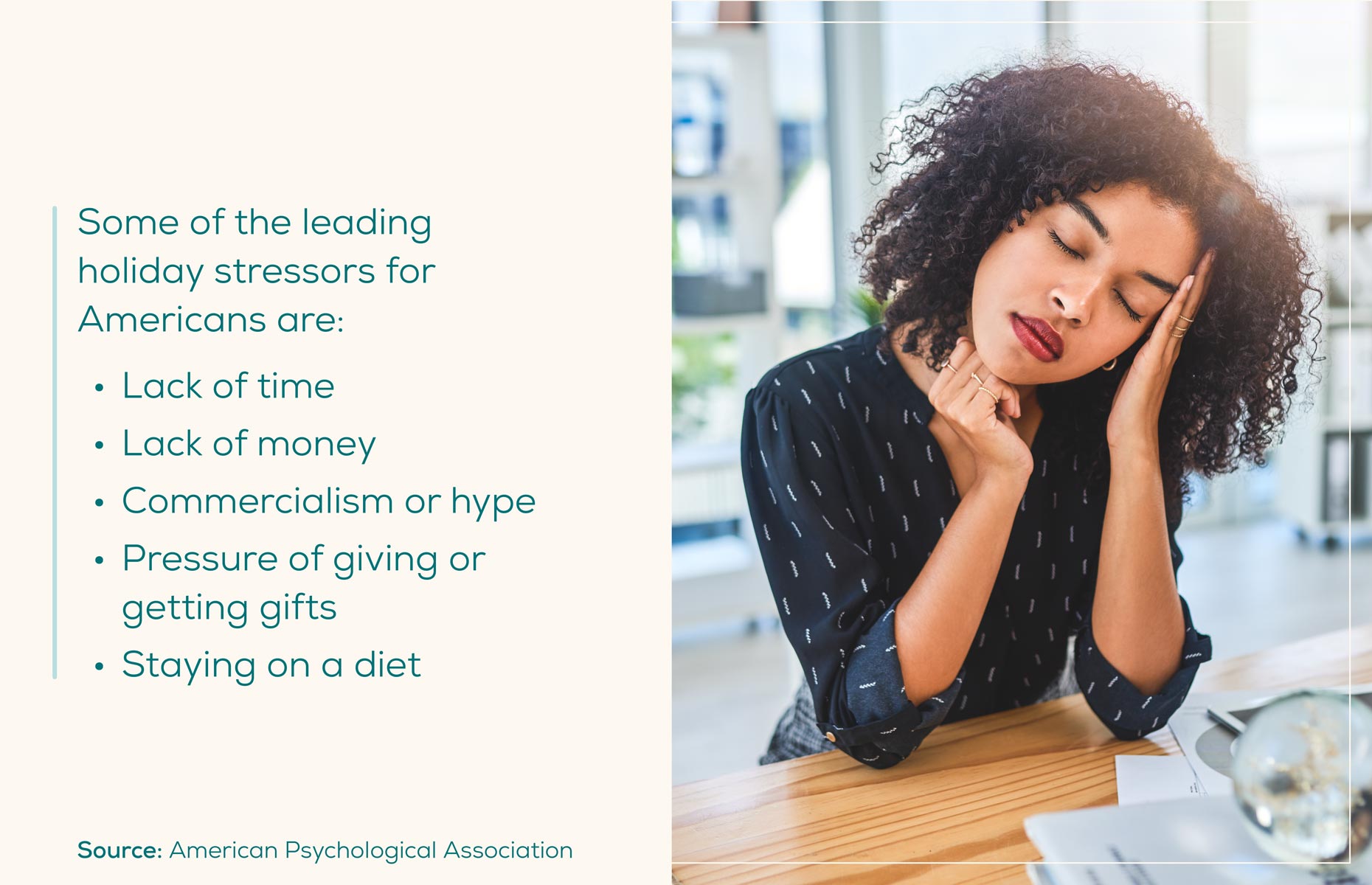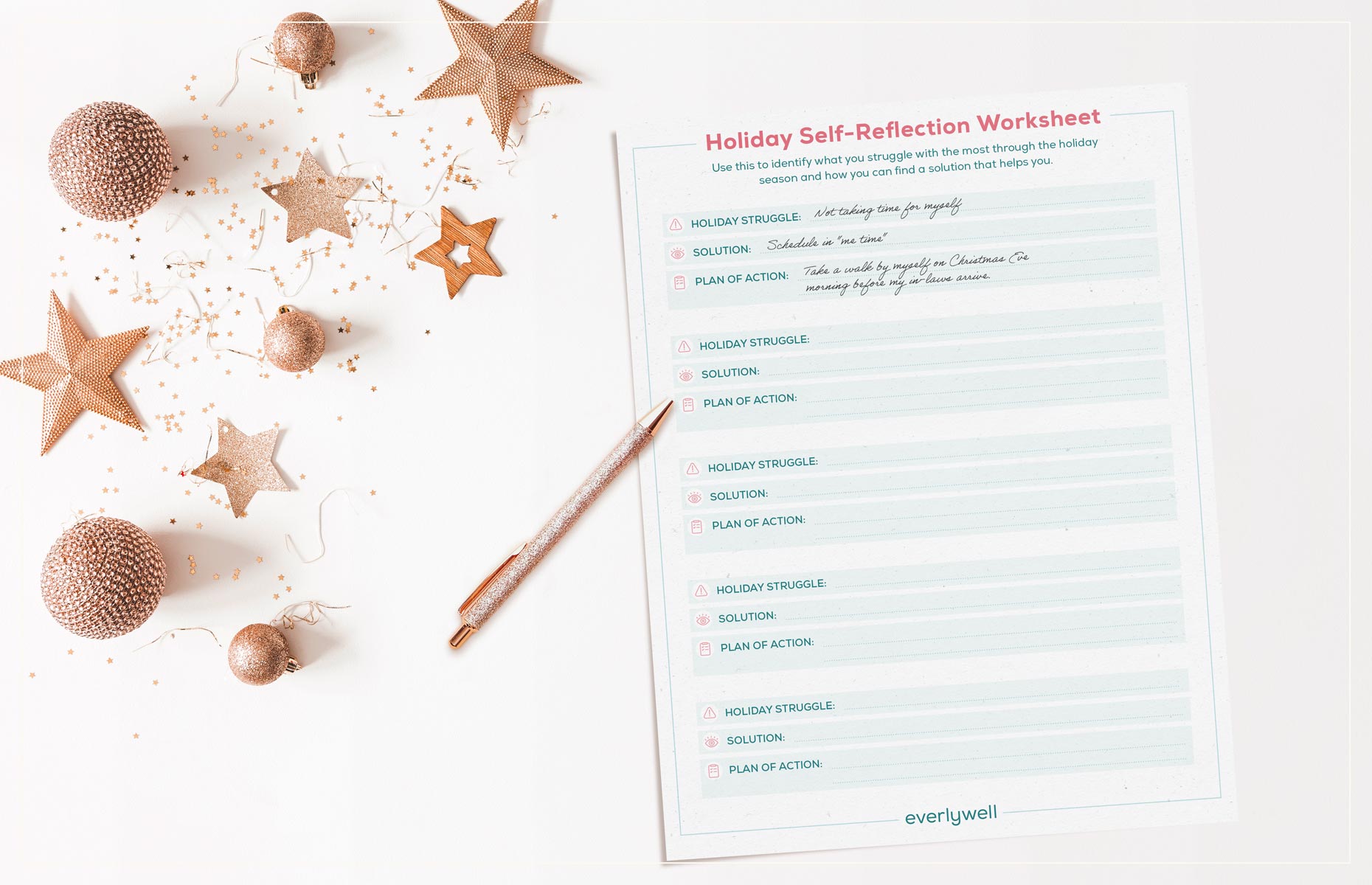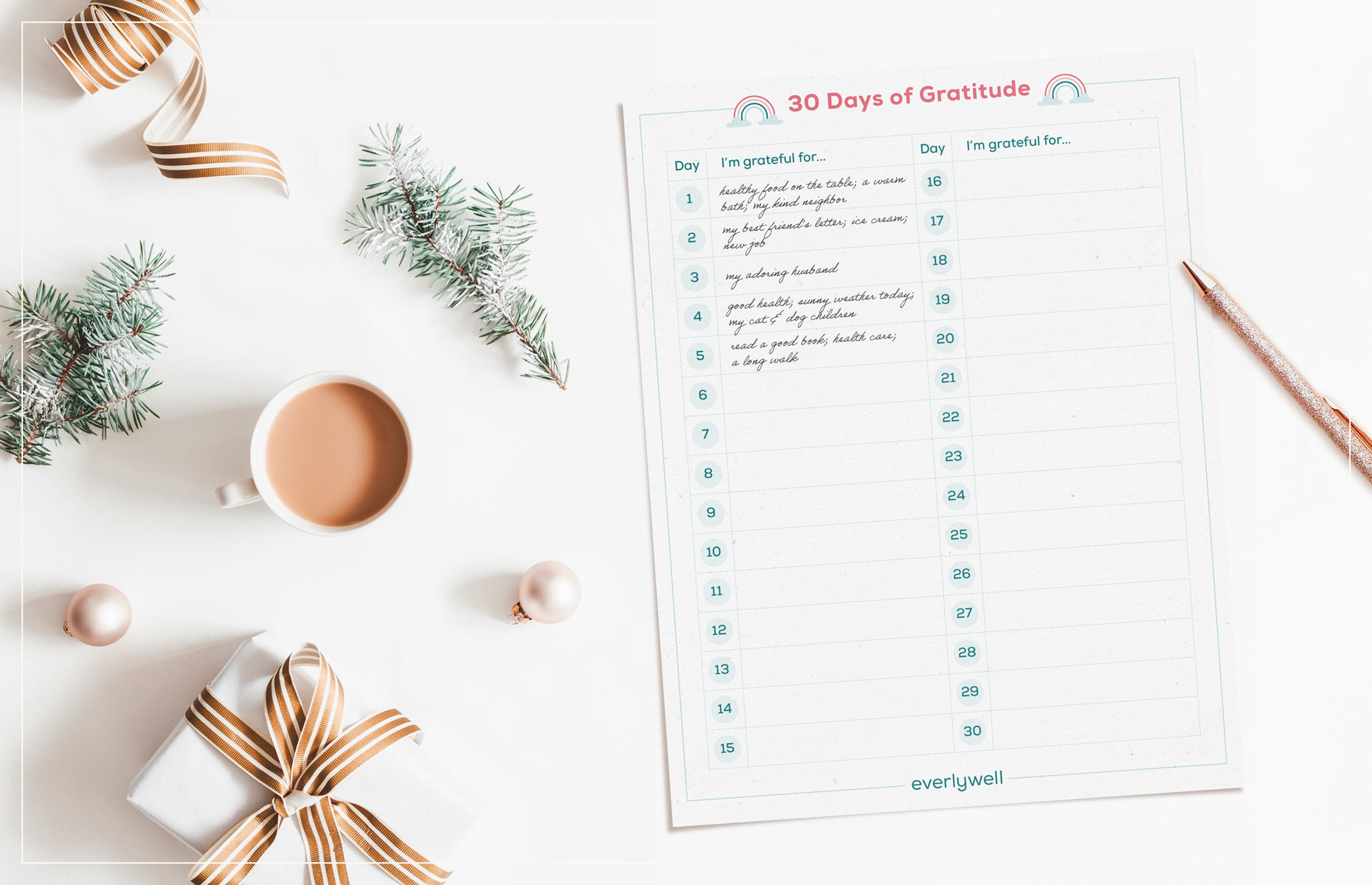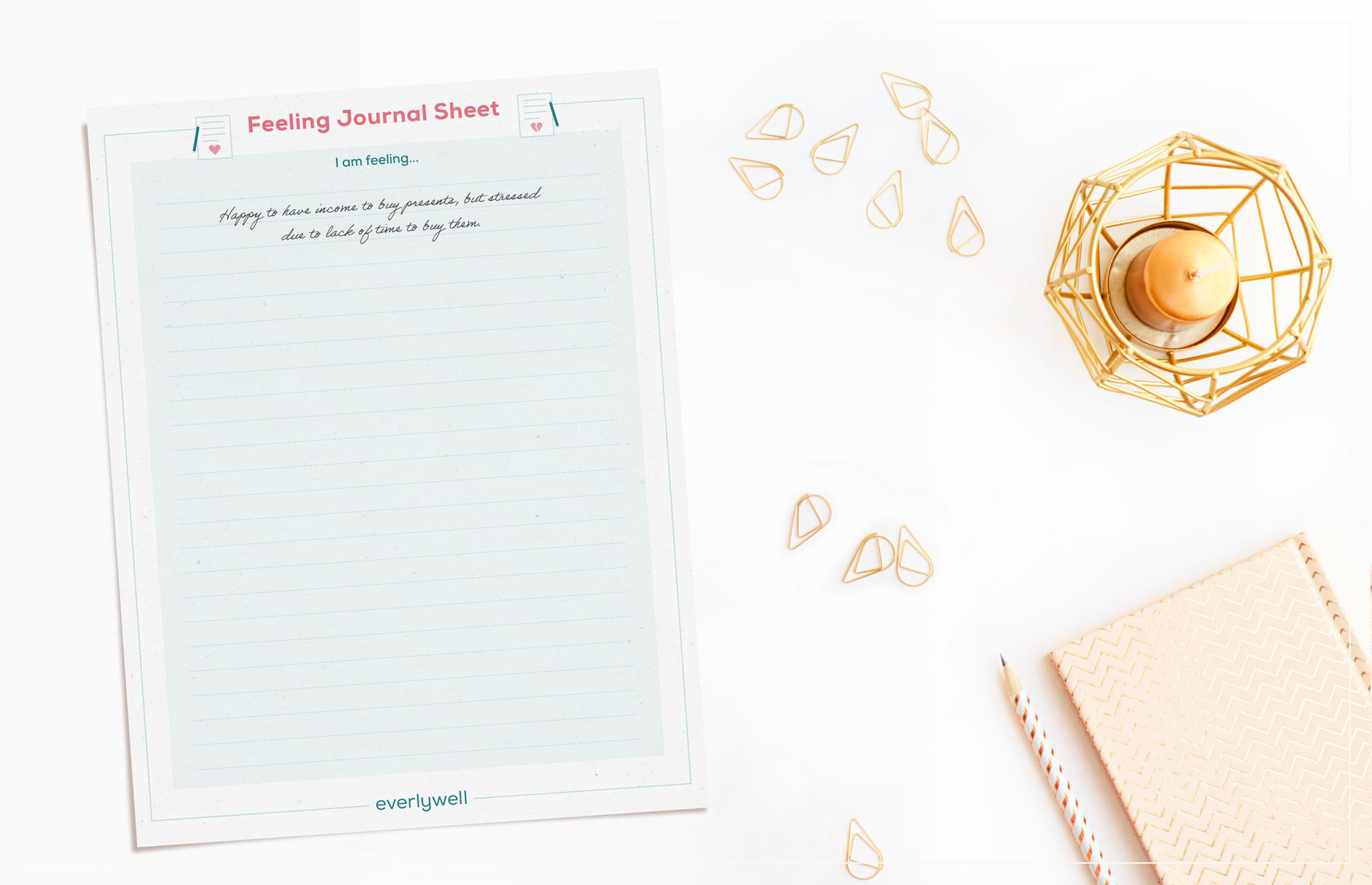
22 holiday stress statistics + tips to survive the festivities
The holidays are synonymous with fun, family, food, and stress — and it’s no wonder why that last part sneaks its way into our festive celebrations. Financial stress, end-of-the-year anxieties about another year past, being around family for long periods of time, and keeping kids entertained while they’re out of school can all add up and cause your cup to boil over.
In order to stay stress-free and able to enjoy the holiday season, we’ve rounded up 22 holiday stress statistics so you know you’re not alone if you usually approach the holidays with trepidation rather than joy. Don’t forget to check out the holiday self-care ideas so you can prioritize yourself during this busy season.
Why are the holidays so notoriously stressful?
As children, we looked forward to the holidays year-round — what changed between then and adulthood to make November through December so notoriously stressful?
The American Psychological Association found that more people in the United States find their stress increases rather than decreases during the holiday season for a variety of reasons. Lack of money for gifts, lack of time to shop and cook, and the overwhelming commercialism and hype of the holiday season can all increase the amount of stress felt during the holidays.
For many, day-to-day responsibilities (such as caring for children or aging parents, working to provide for the family, etc.) also don’t stop during the holiday season. Adding on shopping for gifts, planning holiday get-togethers, and hosting family that’s in town, all while feeling pressure to please and keep everyone jovial and satisfied can cause many people to reach a breaking point.
Who feels holiday stress?
Knowing the statistics behind holiday stress can help you understand you’re not alone if the holidays cause you to feel naughty instead of nice. These 24 holiday stress statistics can help you understand what causes holiday stress, along with how to manage it to keep you from feeling like Scrooge about the whole holiday.
- A 2018 study found that 88% of Americans felt stressed while celebrating the holidays. (Perrigo, via PR Newswire)
- The American Psychological Association found that on average, more women than men report feeling stressed around the holidays. (American Psychological Association)
- 38% of female survey respondents reported being stressed about 2021 holiday costs. (Ellevest)
- More women than men shoulder the responsibility of holiday shopping and planning, and report stress from the limited time available to get everything done. (APA)
- A 2019 survey found that for Americans with children, holiday stress starts early — 27% of surveyed Americans begin to stress about the holidays by the beginning of November. (Total Brain)
- Some of the most commonly felt negative emotions during the holidays include fatigue, stress, irritability, and sadness. (APA)
- People aged 30 and younger are more likely to report a decrease in stress, rather than an increase. (APA)

What causes holiday stress?
- A holiday study conducted by the American Psychological Association found that some of the leading holiday stressors for Americans are: lack of time; lack of money; commercialism or hype; pressure of giving or getting gifts; and staying on a diet. (APA)
- A 2019 survey found that 45.5% of Americans say that other holiday shoppers are the root of their stress during the holiday season. (Total Brain)
- That same survey found that 31.7% of American shoppers would eliminate Black Friday, if given the chance. (Total Brain)
- 34% of Americans worry that work obligations will disrupt their planned holiday celebrations with friends and family. (APA)
- A 2020 survey identified that 50% of respondents were worried about being able to afford any gifts during the holiday season. (Credit Karma)
- The same survey found that a third of respondents felt financially unprepared for the 2020 holiday season. (Credit Karma)
- People who feel increased stress due to the holidays are more likely than others to stress about the financial aspects of the holiday season. (APA)
Where is holiday stress the most prevalent?
- Americans are very likely to find that their stress increases during the holiday season, rather than decreases. (APA)
- A 2018 survey found that, based on the volume of search history for terms like “anxiety disorder” and “stress reduction” in December, the states with the most holiday stress are: North Dakota, Nebraska, Oklahoma, New Hampshire, and Massachusetts. (TermLife2Go)
- The same survey found that the least stressed states around the holidays, using the same criteria for search results, are: Alaska; Wyoming; Washington, D.C.; Kansas; and South Carolina. (TermLife2Go)
- Holiday stress tends to affect lower-middle income individuals more than other classes, who report feeling combined stress about work, lack of time to shop, and stress about money. (APA)

How do people cope with holiday stress?
- People in the United States are more likely to cope with holiday-induced stress by engaging in sedentary behavior, such as eating comfort foods, watching TV, sleeping, and drinking. (APA)
- 45% of women identify the month of October as a key month to get their finances back on track to prepare for the holiday season. (Ellevest)
- A 2020 survey found that 59% of respondents were planning to change their gift-giving traditions, partially to cut down on the cost of gifts. (Credit Karma)
- Some of the top relaxation techniques Americans turn to in order to cope with holiday stress are: listening to music; prayer; reading; walking/exercising for more than 30 minutes; attending religious services. (APA)
4 Holiday Self-Care Ideas To Help You Feel Merry and Bright
While there’s no guaranteed way to make the holidays less stressful, there are some ways you can take care of yourself to take a step back from the hustle and bustle of the holiday season. Self-care should be an important part of your routine no matter the season, but especially during times of high stress (like the holidays).
1. Understand your holiday struggles
Most people struggle with different things around the holidays, from financial stress to anxiety about family getting along. To help you manage stress before the holidays are in full swing, consider doing a self-reflection to see what parts of the holidays you struggle the most with, and how to deal with them when the time comes.
For example, if you always feel rushed when it comes to buying gifts, consider starting shopping early and setting aside gifts for people months in advance. Try using our self-reflection worksheet to see what holiday struggles you face and how to get past them.
2. Have an attitude of gratitude
Being thankful for what you have in your life doesn’t have to be reserved for one holiday. Once the turkey and cranberry sauce is put away, see how practicing gratitude each day can have an overall positive impact on your mental health. Studies have shown that on average, those who focus (through writing or speaking) about what they’re grateful for are more optimistic, feel better about their lives, and have an overall positive view of their own well-being.
Try out gratitude journaling with our 30 days of gratitude challenge to focus on what you’re grateful for each day for one month.
3. Vent your frustrations out
The holidays can be emotional as is, so it’s important to understand your feelings and why you’re feeling them. Journaling can be a helpful way to manage emotions and express yourself, along with being beneficial to your overall mental health and how you feel. Use the below journal sheet to write out exactly how you're feeling and enjoy the catharsis that comes with getting your feelings out in the open.
4. Prioritize sleep and rest
Among other basic needs like eating, showering, and getting fresh air, sleep can also get put last on the priority list during busy, stressful seasons. While this may allow you some extra time to wrap gifts, get some work in, or meal prep for days ahead, sleep is something you should bump to the top of your to-do list. The benefits of sleep are countless — it keeps your immune system strong, memory sharp, and metabolism healthy, among helping other key bodily functions running smoothly.
No matter the time of year, stress can be debilitating and keep us from being our best selves. Learning what physical, mental, and biological factors may be playing into your stress can help keep it under control, and free up your energy for things you enjoy.





